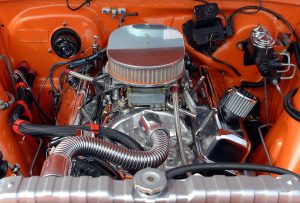cONNECT with us
Now!
Get the
Best Diesel Engine Service

Constant Communication
We communicate with you effectively so that we can understand your needs.

professional Service
We provide professional services that cannot be found anywhere else in the market.

Direct Support
Get real-time support everytime, everyday. we are here to fulfil your unique needs!

Local Solutions
We are based in Castle Hill and surrounding areas; hence we are a local expert.

Call Back
When you fill thecontact form on this page, we shall get back to you as soon as possible.

Skillful Team
We have a team of skilled technicians ready to provide professional solutions.
Diesel Engine Principles for Novices
 Diesel engine principles are quite straightforward for the experienced mechanic but what about routine everyday people who have never made the effort to find out more about a diesel engine and how it works?
Diesel engine principles are quite straightforward for the experienced mechanic but what about routine everyday people who have never made the effort to find out more about a diesel engine and how it works?
In this post, we are going to discuss in layperson’s terms the basic principles of a diesel engine. Let’s begin, shall we?
What’s the difference between the petrol engine and a diesel engine?
The first thing you should know is a petrol engine and a diesel engine are completely different. A Petrol engine is constructed much lighter than the much heavier developed diesel engine and works on an air/fuel mix integrated with a high energy spark that is timed to fire up the air/fuel mix inside each engine cylinder at the accurate time developing power and torque [turning force] which drives your automobile.
A diesel engine utilizes high compression [intake air that is compressed/squished] into an extremely little space inside each cylinder causing severe heat! This is called ‘Heat of Compression’ which sparks an extremely great high-pressure mist of diesel fuel that is injected into the cylinder at the exact time.
So you now know that a gpetrol engine needs a high energy spark to run while a diesel utilizes ‘Heat of Compression’
The four-stroke principle
Every engine today works on 4 strokes or 4 cycles- both these terms mean the very same. Here is how the four-stroke diesel engine operates.
1. Intake Stroke:
Intake valves in the cylinder head open permitting pressurized air to enter each cylinder while the piston is traveling downward.the the pressurized air supply is made possible by the TURBOCHARGER which pushes air into the intake system giving the diesel engine a boost of air to stay up to date with an instant injection of fuel
2. Compression Stroke:
When the piston starts to make its way back up the valves close which traps the intake air in the cylinder which enables compression to take place, the HEAT OF COMPRESSION is reached when the piston reaches the top of the cylinder, the diesel fuel is then injected into the cylinder at the accurate time.
3. Power Stroke:
After injection takes place an explosion takes place in the cylinder because of the combination of heat and atomized diesel fuel. This triggers the piston to be forced downward which produces torque and the horse power required from a common diesel engine.
4. Exhaust Stroke:
After the power stroke, the piston moves upward once again while the exhaust valves open permitting the previously sparked gases to escape to the atmosphere out the exhaust system.
As pointed out before, each cylinder goes through this precise sequence over and over in a set firing order. For instance, a 6 cylinder diesel engine has a firing order of 1- 5- 3- 6- 2- 4 which is the order that each cylinder goes through, following the 4 strokes pointed out above. This sequence has been crafted to enable the diesel engine to run smoothly with no imbalance.
There is much to find out about diesel engines and a ton of details online. If you have ever thought about purchasing a vehicle with a diesel engine you have made a prudent decision! The additional cost will be to your advantage, so it is recommended that you find out more about diesel engines before you decide which one to select.
We have offices in Baulkham Hills, Glenhaven, Cherrybrook, West Pennant Hills, North Rocks, Bella Vista, Kellyville, Winston Hills, Beecroft, Dural and [locations]